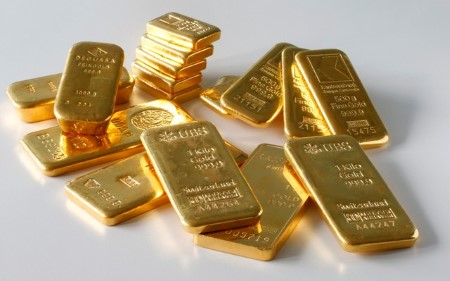




January Economic Update: Growth slows, prices rise
 DOWNLOAD
DOWNLOAD

Inflation Update: Up, up, and away?
 DOWNLOAD
DOWNLOAD

Quarterly Economic Growth Release: Growth takes on a slower pace
 DOWNLOAD
DOWNLOAD


Gold set for fifth monthly fall as investors brace for more US rate hikes

Aug 31 (Reuters) – Gold prices were set on Wednesday for a fifth straight monthly drop, as solid US economic data and hawkish Federal Reserve comments pointed to more interest rate increases, denting the non-yielding metal’s appeal.
Spot gold fell 0.1% to USD 1,721.59 per ounce, having hit its lowest level since July 27 at USD 1,718.70 earlier in the session. Bullion has lost 2.5% so far in August.
US gold futures dipped 0.2% to USD 1,733.10.
“The Fed does not have intentions to significantly ease in the near term. Their focus is on inflation and what they want to do is perhaps even create some two-way risks around policy expectations where they’re giving a bit less explicit forward guidance,” said Ilya Spivak, a currency strategist at DailyFX.
This contributes to gold’s weakness and the US dollar’s strength, Spivak added.
New York Fed chief John Williams said on Tuesday the US central bank will be likely to need to get its policy rate “somewhat above” 3.5% and keep it there through the end of 2023.
Even though gold is seen as a hedge against inflation, rate hikes raise the opportunity cost of holding bullion while boosting the dollar.
Latest data showing US job openings increased in July and a bigger-than-expected rebound in consumer confidence in August bolstered expectations that the Fed will maintain its aggressive policy stance.
The dollar index steadied close to a two-decade peak reached on Monday.
A number of European Central Bank policymakers have also called for swift rate rises.
Spot gold may test a support at USD 1,710 per ounce, a break below which could open the way towards USD 1,680-USD 1,698 range, according to Reuters technical analyst Wang Tao.
Spot silver fell 0.7% to USD 18.37 per ounce and was down more than 9% for August, its biggest monthly drop since September 2020.
Platinum was flat at USD 847.45, but was headed for a more than 5% drop for the month. Palladium gained 1.6% to USD 2,121.27 per ounce.
(Reporting by Eileen Soreng in Bengaluru; Editing by Subhranshu Sahu, Sherry Jacob-Phillips and Jane Merriman)
This article originally appeared on reuters.com





 By Reuters
By Reuters